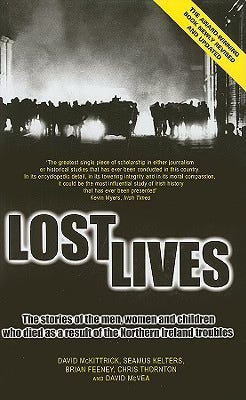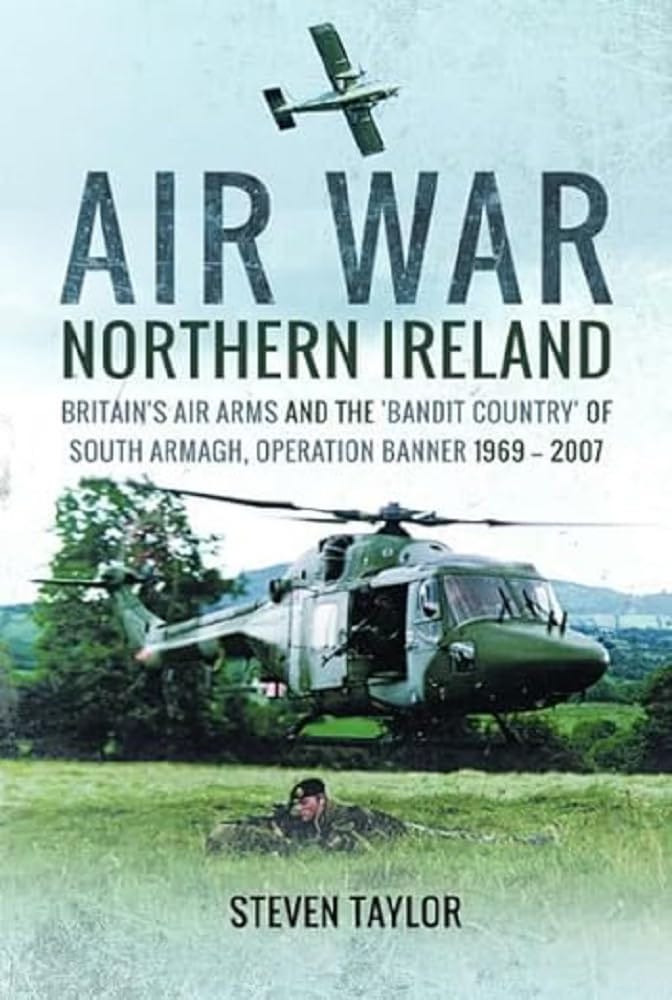March 1979: "...abstain in person"
March 1979 was a month for political developments. Halfway across the world, the Gairy dictatorship in Grenada was overthrown by the New Jewel Movement. meanwhile, in Britain, the labour government was having problems of their own…
Political Developments in March 1979
March began with further developments on the DeLorean project in Northern Ireland. On the 7th, Brian Lyttle sent a letter to Reginald Browne. The contents were as follows;
Dear Reg
The secretary, Frank McCann and I had a meeting yesterday with John DeLorean and his managing director, Chuck Bennington. The meeting was essentially for the purpose of maintaining contact and DeLorean reported good progress in the setting up of the new operation.
He also said that the company would, in about two weeks’ time, be appointing its own advertising agents in the USA and that they would then be working out an advertising strategy, which might include arrangements for targeting campaigns towards particular areas. He suggested that it might make sense to coordinate these arrangements with our drive in order to heighten awareness on a selective basis both of the impending arrival on the scene of the DeLorean car and of the fact that it is coming from a country with a well established industrial, and particularly engineering, tradition where advanced technology flourishes.
We agreed that the idea was worth exploring, probably in the context of a discussion involving the company’s agents when appointed, Ayer and yourself. You may therefore like to note the point and see if such a meeting could be arranged at the appropriate time. If you want us to keep track of the company’s moves to appoint advertising agents Frank can no doubt do so at this end. It strikes me that your series of advertisements featuring the positive attitudes of NI labour might fill the bill with little or no adaptation.
Yours sincerely
J B C Little
On the 13th of March, John DeLorean sent a letter to George Quigley at the Department of Commerce, following their meeting.
Dear George
It was a pleasure to see you last week. We are extremely pleased at the progress of our operation. Our major concern was our ability to hire capable automotive people and move them to Belfast. To date, we have put together one of the finest teams in Europe. The technical program at Lotus is a bit ahead of schedule and the site and building progress are right on target. Our dealer program in the U.S. is proceeding rapidly, and we would expect it to be essentially completed by year end.
As you know, during our negotiations we mutually agreed that it would be desirable to set aside a fund to acquaint the world with the craftsmen of Northern Ireland, thus creating the climate for acceptance of a prestige automotive product built there. We had requested that the Department of Commerce allocate $5 million for this purpose. These funds would not be mixed with your normal NIDA promotional expenditures. We would visualise a total expenditure of $10 million to launch our car with $5 million from each of us. The $10 million would be spent in traditional automotive advertising, extolling the virtues of the car and the pleasures of ownership. Your $5 million would be spent primarily on showing individual members of the Northern Ireland workforce and discussing their industrial heritage in relation to producing a car of outstanding quality. We could perhaps show a picture of the man, and discuss his family background, his new job, how he feels about it and how important it is to him. In the end, it is institutional advertising for both of us. These efforts would have to be coordinated carefully so that they added up to a cohesive, believable whole. I would propose that our agency prepare all ads with the specific approval of your staff.
Is this generally in accord with your thinking?
Sincerely,
John Z. DeLorean
It seemed that John Delorean had a clear plan for how he wanted things to pan out.
The committee headed by the English judge Harry Bennett, which was set up on the 16th of March to investigate allegations of ill-treatment of people held in interrogation centres in Northern Ireland, published its report (Bennett Report, Cmnd 7497). The report found that there were instances where there was medical evidence of injuries sustained in police custody which were not self-inflicted. The report made several suggestions and the Labour government undertook to implement two major recommendations. The first that closed-circuit television cameras should be installed in interview rooms, and the second that those being detained should have access to their solicitor after 48 hours in custody. When the Conservative Party came to power in May 1979, the new government implemented most of the remaining recommendations in the report.
That same day, Reginald Browne replied to Brian Lyttle’s letter on the DeLorean project.
Dear Brian,
Thank you for your letter of March 7 regarding your meeting with DeLorean and his colleagues.
You will be aware that we have been involved in considerable in-depth thinking and research prior to and during the evolution of our current advertising campaign. I am particularly pleased that we are receiving numerous telephone calls which clearly indicate that people are reading our ads. This is a new experience for us. The Airco enquiry was, for example, the case of a senior executive in a very large organisation actually reading the ad in Forbes Magazine in bed one evening - and being prepared to say so when he telephoned me to make an enquiry. We have had numerous other enquiries of this kind, but none quite so dramatic as yet. When I was in Texas a couple of weeks ago, I was greatly heartened by the number of people who, when greeting me, said that they had been following our recent advertisements in their favourite trade journal.
Against this background, I would be very reluctant to tamper with the present campaign. We have, as you know, been very careful to avoid highlighting the DeLorean story in our advertisements. There has been much publicity given to the DeLorean project in the USA, and not all of this has been favourable. There have been unfavourable letters in the press, and we have been the butt of some ridicule because of the nature and size of the investment. Moreover, we have had companies calling us and suggesting that they would like similar assistance! My intuitive feeling, therefore, is that DeLorean should be allowed to get on with his campaign and we should wish him every success.
Having said this, if the Department has committed us to seeing DeLorean's advertising agency, we shall be happy to discuss this matter with them. We have been maintaining close contact with their public relations agency, and I don't know whether they will also handle the advertising. We have a good relationship with them, and I think they would accept our polite refusal to get involved with the DeLorean campaign.
I have copied to you my note in reply to Alan Macartney's letter of March 6 and I should be grateful to have your directive on the next step for NIIDO in the matter of our involvement with DeLorean regarding our advertising campaign.
Kind regards.
Yours sincerely,
R.J. Browne
On the 28th of March, the Labour government was defeated in a vote of confidence by 311 to 310 votes. The votes of Northern Ireland MPs were decisive in bringing down the government. Eight Unionists voted against the government, two Ulster Unionist Party MPs voted with the government, and SDLP leader Gerry Fitt and independent Nationalist MP Frank Maguire both abstained. Fitt had decided to withdraw his support from the Labour government over its failure to act on all the recommendations of the Bennett Report. Maguire, who had a policy of abstention from Westminster, did, in fact, travel to the House of Commons on this occasion. He later commented, "You could say I came over to London to abstain in person". The loss of the vote of confidence was to trigger a general election on the 3rd of May 1979, which would return a Conservative government with Margaret Thatcher as Prime Minister.
There was a further development on the East/West migration in Derry on the 29th of March when a memorandum was sent from R Kidd to the Secretary of State. it contained 5 key points.
Following your meeting of 6 November last with Mr Ross and Bishop Eames, you asked that a study be made of ways in which the drift of Protestants from the West Bank of the Foyle to the East Bank could be countered. The initial work on this has now been completed and I attach a report by District Development Officer, Mr White and one by Mr Neilson, regarding the conclusions which he and other officials reached following a visit to Londonderry.
Mr Ross and Bishop Eames started from the assumption that this movement of population was undesirable and that Government should take some positive action to maintain the West Bank population. Examination leaves no doubt about the fact of the drift to the East Bank and the undesirable political and social consequences which this might give rise to. Nevertheless, officials have concluded (and this is a view which I would endorse) that the solution lies not with any attempt at sectarian engineering of population patterns but rather in encouraging the free movement of population within Londonderry. Above all, the city centre should be developed in such a way as to prove an attractive magnet to East Bank Protestants both as a place of work and a shopping and recreation centre. This we consider is the best way to maintain the unity of the city and avoid a "two-city" syndrome.
The Richmond development promises to be an important facility for the whole community, whilst the second bridge will greatly ease the movement of the working population from the West Bank to the East Bank industrial estates. The new urban park and facilities on the West Bank Waterfront will do much to improve the appearance of the area between the existing bridge and the Guildhall. The proposal for a police presence in the Shantallow is important in retaining that estate as an area of relative calm and contentment. I am glad to say that initial planning permission for this station has recently been sought.
Having discussed these reports with certain Permanent Secretaries and Sir Brian Cubbon, I am sure that we should continue (particularly at a time when cash limits might be strictly applied) to give priority to the city centre and ensure that any programme reductions are handled in such a way as to maintain its impetus and coherence. A critical factor in the success of the Richmond Street development will be the attraction of a major UK store like Marks and Spencer, Boots or C & A. So far, such attempts have been unsuccessful, and I believe that intervention at Ministerial level would be the most effective way in which to overcome these firms' reluctance and to demonstrate Government's commitment to Londonderry. If the Secretary of State would be willing to make such an approach, the necessary drafts will be put forward.
The Secretary of State is invited to agree:
that the general line of our approach to Londonderry's development should continue to be one which stresses interdependence of the West and East Banks and avoids the "two-city" syndrome;
priority should continue to be given to the development of the city centre and the second Foyle bridge and that in volume reduction in programmes special care should be given to maintaining the coherence of these programmes;
that a Ministerial approach should be made to a major UK retailing concern inviting them to locate in the Richmond Street Development;
that officials should pursue the detailed recommendations arising out of the study as a matter of urgency;
that for the moment no written report should be sent to Mr Ross or Bishop Eames, as we consider that steady progress on the already established course is more likely to persuade them of the essential rightness of what is now proposed and the difficulty of adopting the course which they suggest.
Shootings, Beatings & Abductions in March 1979
03/03/79 - An Army Air Corps Gazelle was heavily damaged when engaged with machine gun fire by an IRA unit at Glassdrumman, County Armagh, Both the pilot and a Grenadier Guards Major were wounded. Despite his injuries, the pilot flew the battered helicopter back to Crossmaglen base.
10/03/79 - INLA snipers opened fire on a British Army and RUC patrol in Belfast, no hits were claimed.
22/03/79 - Members of the IRA killed British Ambassador to the Netherlands Richard Sykes (58) and also his Dutch valet Krel Straub (19) in a gun attack in Den Haag, Netherlands.
22/03/79 - An INLA sniper opened fire on an RUC mobile patrol in Cromac Street adjacent to the Market area of Belfast, injuring one RUC officer after hitting him in the arm and his thigh.
27/03/79 - Civilian Gerry Evans (24) was abducted while walking along a road near Castleblaney, County Monaghan. His remains were eventually found on the 15th of October 2010 by information supplied anonymously. He was buried in a bogland in Carrickrobin, near Dundalk.
30/03/79 - Civilian Martin McConville (25) was beaten to death somewhere in Portadown. His body was found in the river Bank, beside the Seagoe Industrial Estate, Portadown, on the 22nd of April 1979.
If you’d like to support the newsletter, why not buy me a ☕️ ?
Bombings in March 1979
06/03/79 - An INLA booby-trap bomb exploded underneath the car of UDR soldier Robert McNally (20) as he was leaving a car park, West Street, Portadown, County Armagh. McNally died on the 13th of March.
09/03/79 - The INLA carried out several firebomb attacks on banks in Belfast.
19/03/79 - An IRA unit launched a mortar attack on Newtownhamilton British army base. One British soldier, Peter Woolmoore (21) was killed.
30/03/79 - Conservative Party spokesperson on Northern Ireland Airey Neave was killed by a booby-trap bomb attached to his car as he left the car park at the House of Commons. The INLA claimed responsibility for the killing. If he had lived, Neave would have been highly likely to have become the Secretary of State for Northern Ireland in the new Conservative government. Neave had been an advocate of a strong security response to counter Republican paramilitaries. Neave had also advocated the setting up of one or more regional councils to take responsibility for local services.
Thanks very much for reading. I hope you found it interesting and will come back on Sunday!
I appreciate everyone who recently hit that heart icon ❤️ at the bottom. It makes it easier for other people to find this newsletter.
Thanks for the support!
I’ve also recently released Tales of The Troubles: Volume 1. The Early Years - 1960s. Check it out. It would be a great addition to your library or a gift for someone for Christmas. Stay tuned for Volume 2, covering the 1970s.
If you’d like to let me know what you think of today’s instalment, please comment below.
Some recommended reading based on research for this instalment.
Lost Lives: The Stories of the Men, Women and Children Who Died as a Result of the Northern Ireland Troubles by David McKittrick, Chris Thornton, Seamus Kelters and Brian Feeney.
INLA Deadly Divisions by Henry McDonald & Jack Holland.
Air War Northern Ireland: Britain's Air Arms and the 'Bandit Country' of South Armagh, Operation Banner 1969–2007 by Steven Taylor.








